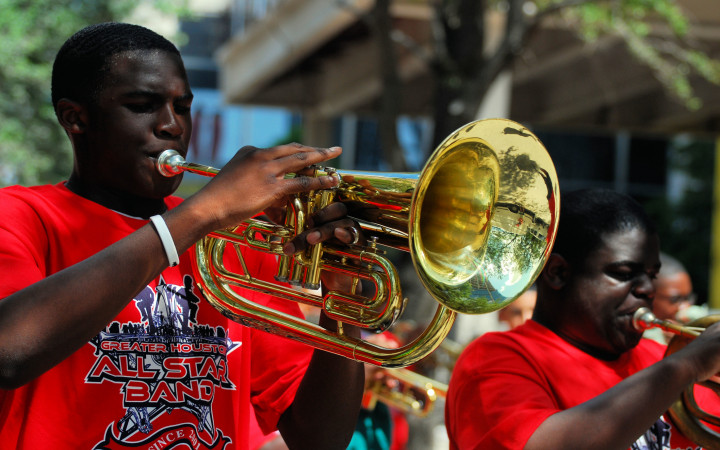Today’s Wonder of the Day was inspired by Jessie. Jessie Wonders, “If slavery really ended, when did slavery end?” Thanks for WONDERing with us, Jessie!
How do you celebrate freedom? Do you set off fireworks in America on July 4? If you live in Myanmar, you might throw a party on January 4. Maybe you read the Grito de Dolores on September 16. People celebrate liberty in many ways!
Do you live in a country that has freedom of speech, press, and religion? If so, you’re lucky. Many people don’t have those rights. Even within countries, some people may have less liberty than others.
For example, freedom was kept from Black people in America for about 300 years. Instead of being free, they were enslaved. Slavery destroyed millions of lives and still has long-reaching consequences in modern-day society.
Today, many Americans celebrate the end of slavery. Are you WONDERing on which day they do so? It’s not January 1, the day President Abraham Lincoln signed the Emancipation Proclamation. It’s also not April 9, the day the Civil War ended. You might think it’s December 6, the day slavery was made illegal by the 13th Amendment. But that’s not it, either! People celebrate the end of slavery on June 19.
This holiday is called “Juneteenth.” It’s the date slavery ended in Texas, which was the westernmost state in the Confederacy. During the Civil War, many enslavers relocated to Texas as the Union Army moved through the South. They did so to keep people under their power for longer.
Communication moved slowly back then. There were no telephones, and there definitely wasn’t email. News of the end of slavery took a long time to reach Texas. Months after the end of the Civil War, many Black people in Texas were still enslaved.
On June 19, 1865, General Gordon Granger rode into Galveston, Texas. There, he made it known that slavery was over. The 250,000 enslaved people in Texas were free. It was two months after the Civil War ended and two years after the Emancipation Proclamation. However, enslavers didn’t want to accept the news. It was some time before people felt free.
The first Juneteenth celebration was held in 1866. There, Black Americans read the Emancipation Proclamation and prayed together. They spent time with their friends and families and sang hymns. Black Americans in Texas kept celebrating Juneteenth each year. As they moved to other parts of the country, the holiday spread.
Slavery was over—but there was still a long fight ahead. It was several more years before Black people gained citizenship and the right to vote. For decades, they lived under segregation. They dealt with brutal treatment from White people who didn’t see them as equals. Today, Black Americans and their allies still work to achieve racial equity.
Juneteenth celebrations fell away in the early 1900s. However, they were revived in 1968. Reverend Ralph Abernathy’s Poor People’s March in Washington, D.C., helped bring the holiday back. On January 1, 1980, Juneteenth became an official state holiday in Texas. In 2021, President Joe Biden declared it an official national holiday.
Do you celebrate Juneteenth? If so, you know the holiday is very special. Some families have cookouts. Others put on skits or share family stories. Many communities have parades. Often, it’s a time for community elders to pass on wisdom and for people to honor their shared history. How do you mark special occasions with your family and friends?
Standards: C3.D2.His.2, CCRA.L.3, CCRA.L.6, CCRA.R.1, CCRA.R.2, CCRA.R.4, CCRA.R.10, CCRA.SL.1, CCRA.SL.2




